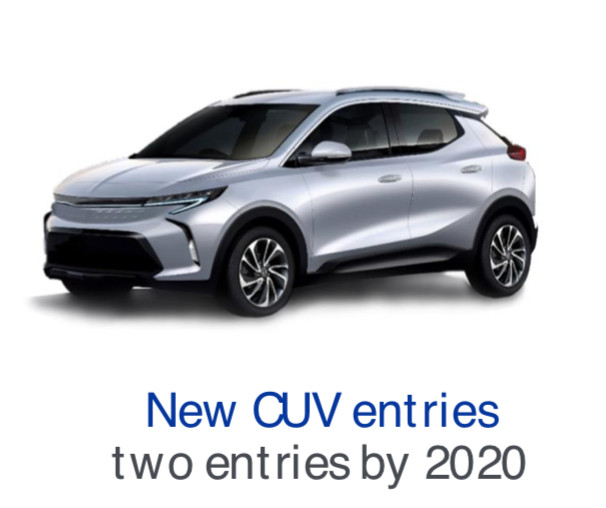Radically new powertrains are widely assumed to lose money for the companies that launch them.
Toyota's hybrid-electric system, launched in Japan in 1997, likely didn't break even until sometime after the 2004 launch of the second-generation Prius.
Long-range battery-electric vehicles are the same, according to analysts and insiders: the question isn't whether their makers lose money selling them, but how much.
DON'T MISS: GM goal: profitable, affordable electric cars built in big numbers
Nonetheless, the world's automakers are going to have to figure out how to make money on the huge volumes of electric cars China will shortly start requiring them to sell.
And if a recent article in Reuters is accurate, that day may come for General Motors as soon as three year from now.
CEO Mary Barra promised investors on Tuesday that would be the case—and the reception to the 238-mile Chevrolet Bolt EV electric car has apparently encouraged the company to accelerate its plans.

Chevrolet Bolt EV electric car with future GM electric and hydrogen fuel-cell vehicles, Oct 2017
"The launch of the Bolt and its warm reception by reviewers, customers and investors," Reuters said, "was a watershed event for Barra and GM’s top management."
While the Bolt EV took nine months to roll out nationally, its sales have increased month over month and it was one of the five best-selling plug-in vehicles in the U.S. in its first year.
"The future is electric," said GM late last year, announcing a faster rollout pace for all-electric vehicles, with two entirely new models before 2020 to join the Bolt EV.
READ THIS: Ford's electric-vehicle strategy: absorb costs in most profitable trucks (Sep 2016)
Key to profitability is continued improvements not only in cell cost from suppliers, but the other components of electric cars that GM designs and controls more directly.
The company is developing a new "plug-and-play" vehicle architecture for future generations of electric-drive vehicles that will accommodate battery packs of different capacities and even hydrogen fuel cells, said one source to Reuters.
While product chief Mark Reuss told Reuters, "There are no silver bullets," GM electrification chief Pam Fletcher suggested many of the company's recent refinements and enhancements have not been made public.

GM Electric Car Presentation
Still, GM's ability to sell electric cars at a profit continues to depend on how fast the cost of lithium-ion battery cells declines.
Reuss said well before the Bolt EV launched it would pay $145 per kilowatt-hour for the cells that went into the very first cars off the line in 2016—to the dismay of LG Chem, its cell supplier.
More than 25 years of data indicates that lithium-ion cells in small "consumer formats" used in personal electronics fell at an average of 7 percent a year. Declines in the larger cells used in vehicles since 2010 have exceeded that rate.
CHECK OUT: How Much And How Fast Will Electric-Car Battery Costs Fall? (Mar 2012)
Reuss said last year that the company would reach a cost of $100 per kilowatt-hour before its previously announced goal of 2022.
Most long-term analyses of the industry support the view that such a decline will inevitably bring electric cars to parity with conventional vehicles.
"Automotive experts say GM's battery and EV group is one of the largest in the world," Reuters wrote, "rivaled only by Toyota Motor Corp in Japan and Daimler AG in Germany."

2017 Chevrolet Bolt EV pre-production vehicles at Orion Township Assembly Plant, March 2016
Toyota, of course, has said for a decade or more than long-range electric cars are impractical, and hydrogen fuel cells will be the zero-emission solution for future decades.
Daimler, meanwhile, appears to have lagged both BMW and, more recently, Volkswagen Group in its commitment to plug-in vehicles and the pace at which it is rolling them out.
If any maker can make money selling long-range electric vehicles, a case could be made that GM is well-positioned to be that company.
[hat tip: JayTee]
_______________________________________













